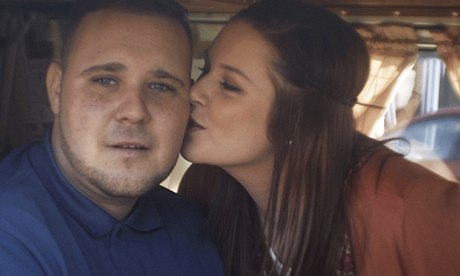
They say money can't buy love, but controversial payday lender Wonga is attempting to win the hearts of its critics with a film that promises to tell the "real stories" of its hard-pressed borrowers.
Twelve Wonga customers are the stars of a 30-minute film commissioned by the firm to counter criticism that it targets the vulnerable with interest rates of up to 5,853%.
Billed as a "modern, authentic and relevant" portrait of British life, the movie pulls at the heart strings by showing people trying to bounce back from low ebbs, including a woman who borrowed £200 to pay for flowers at two family funerals in the same week.
For Wonga the film marks the start of a PR fightback against what it calls a ceaseless "misrepresentation" in newspapers.
"The reason we commissioned that film is that we wanted to redress the debate about Wonga out there," said Niall Wass, its chief operating officer, after the film's low-key premiere in London on Monday night. "What we felt was that the voice of the silent majority was not being heard, but there were perceptions out there that weren't justified."
The debut of the film – before an audience of business journalists, film critics and a smattering of Wonga customers – comes before a grilling by MPs in Westminster on Tuesday as calls grow for tighter curbs on payday lenders.
The half-hour movie, named 12 Portraits, marks a surprise departure from routine corporate marketing tactics – not least because it does not mention Wonga or borrowing until the closing credits. Instead, it tells the "unscripted" stories of 12 customers who volunteered to participate in the film earlier this year – for free.
Viewers see Angela, from Dewsbury, who borrowed £200 to pay for flowers at two family funerals in the same week and repaid under £235, including interest and fees, two weeks later. Dawn from Doncaster loaned £180 to hire camera equipment after deciding to switch careers following a breast cancer diagnosis two years ago. She repaid £208, including interest and fees, the film says.
Others did not fall upon such hard times. Blackpool karaoke king Dennis found himself stuck for cash and borrowed £101 from Wonga to fund his travel costs between gigs. Four days later he repaid £111.
But the film's debut failed to quieten all of the firm's critics. Gary Tarn, its Bafta-winning producer, bristled when asked by one audience member if his work was "artfully-produced propaganda". "If someone called it that I would say I don't see it that way. I don't think I was toeing the party line," he said.
"I was given the freedom to go out there and make the film and if that happens to reinforce a position they're happy with, so much the better, but if it didn't happen to have done that, that would be the film it would have been. Sorry if it didn't meet with people's preconceptions, but these were the people I met."
In a Q&A after the screening, Wass refused to classify the film as advertising or marketing and declined to reveal the cost of marketing the film in cinemas and on Channel 4 later this year.
Business minister Jo Swinson responded to the film by saying payday lenders have "far bigger advertising budgets than debt charities or government money advice could ever hope to have". She added: "I've been concerned about vulnerable customers being lured by adverts into taking out payday loans that aren't right for them. While for some people in some circumstances payday loans can be a useful product, there are many others who are already in financial difficulty and need debt advice, rather than more debt."
Wonga's previous experiments with advertising have failed to do much for its image. Only last month, the advertising watchdog banned a radio skit featuring the rewritten lyrics from the 1950s song Mr Sandman: "You make it easy when the month feels too long. Thanks for everything you've done. Mr Wonga, you're No 1."
Its sponsorship of Newcastle United also went awry earlier in the year when Papiss Cisse, the striker, temporarily refused to wear the shirt after complaining that it conflicted with his Muslim beliefs.

